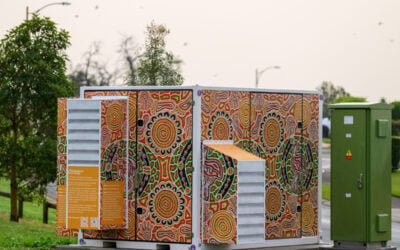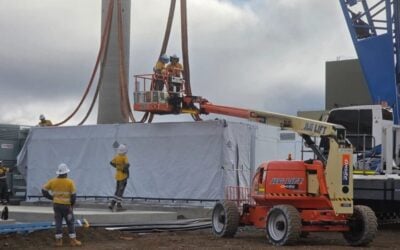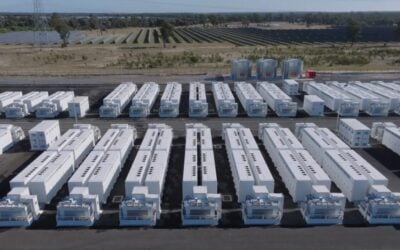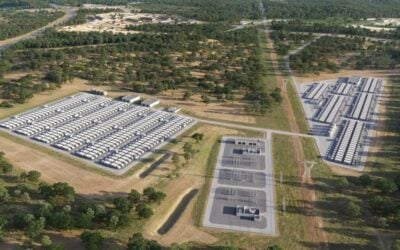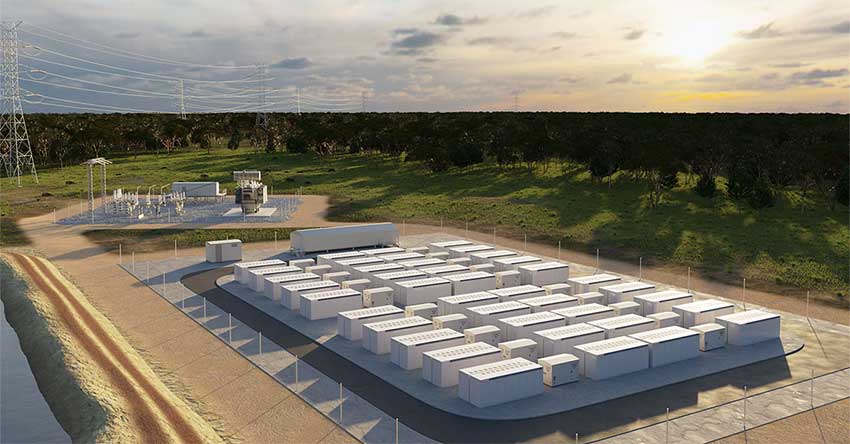
A 100MW/200MWh battery energy storage system (BESS) comprising Tesla Megapacks will be built by a state-owned power company in Queensland, Australia.
The state government announced today that generation company CS Energy will install the grid-scale project at a site near the town of Chinchilla, in Queensland’s Western Downs Region, about 300km inland from Brisbane.
Enjoy 12 months of exclusive analysis
- Regular insight and analysis of the industry’s biggest developments
- In-depth interviews with the industry’s leading figures
- Annual digital subscription to the PV Tech Power journal
- Discounts on Solar Media’s portfolio of events, in-person and virtual
The project will cost around AU$150 million (US$112.6 million) and will create up to 80 jobs during construction and 10 operations roles once commissioned. Queensland Treasurer and Minister for Trade and Investment Cameron Dick said the project should be operational by the end of 2023.
“Queensland has the natural resources of wind, sun and water to be a renewable energy superpower. As we work towards our target of 50% renewable energy by 2030, we can also support more jobs in new industries right across regional Queensland,” Dick said.
The BESS will be part of an energy hub CS Energy is developing at the site of Kogan Creek Power Station, a 750MW black coal power plant fed by a neighbouring coal mine, both of which the company owns. The system will be connected to the Western Downs 275kV substation of network operator Powerlink.
CS Energy is also building a green hydrogen demonstration plant at the hub which will be charged from an onsite 2MW solar PV power plant and will have its own smaller 2MW/4MWh battery system to help feed the 700kW hydrogen electrolyser and fuel cell.
The demonstration plant will have onsite hydrogen storage capacity of about 750kg and through an offtake deal with Sojitz Corporation, hydrogen produced at the plant will be exported to the Republic of Palau.
Queensland authorities stepping in where federal government has ‘done little’
The renewable energy hub marks the latest plan by an Australian power company to leverage an existing coal power plant site for its land and infrastructure and use it for battery storage and other clean energy technologies. Connection to the grid, as well as access to water and workforce are among the direct advantages.
Yallourn coal plant in Victoria, which is scheduled for retirement in 2028, will be host to a 350MW/1,400MWh BESS built by the plant’s owner, EnergyAustralia. Eraring coal power plant in New South Wales is planned for closure by owner Origin Energy by 2025 and will be host to a 700MW BESS.
Australia’s biggest generation and electricity retail company AGL recently got approval for a 500MW/2,000MWh BESS to be built for a renewable energy hub at Liddell power station, a coal power plant set for retirement by the end of April 2023 in New South Wales.
In the case of the CS Energy Kogan Creek site, CEO Andrew Bills said the BESS project would give power plant employees the chance to learn about the new technology as the energy industry adapted to the low carbon energy transition.
Adding the new project to its portfolio would enable CS Energy to compete better in the National Electricity Market (NEM), as it evolves to favour the competitiveness of fast-responding battery storage and inverter-based renewables, Bills said.
Queensland Minister for Energy, Renewables and Hydrogen Mick de Brenni took a bit of a shot at Australia’s federal government, headed up by Scott Morrison, stating that the federal budget —announced today and slammed by the national Clean Energy Council for its continued lack of ambition on climate issues — did little for the state.
Hence Queensland’s government was instead stepping in to fund the BESS, which he said represented “further diversification of energy and modernisation of Queensland publicly-owned power generation”.
Investment in energy storage solutions will enable the continued uptake of rooftop solar in the state, de Brenni said, allowing more Queenslanders “to enjoy the savings” that cheap renewable energy could bring.
Australian solar and storage market research group Sunwiz recently reported that the country installed more than 1GWh of energy storage in 2021, the first time that figure has been exceeded for a year’s deployments. However, Queensland represented a fairly small wedge of that, accounting for just 8% of the entire market and for 14% of operating commercial and grid-scale storage capacity to date across Australia.

